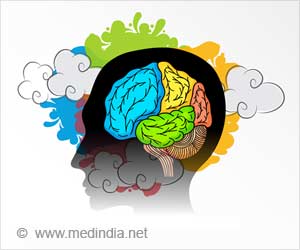It would be spending $33 million to add about 200 mental health professionals to help soldiers with post-traumatic stress disorder and other mental health needs.
"As the war has gone on, PTSD and other psychological effects of war have increased," conceded Col. Elspeth Ritchie, psychiatry consultant to the Army surgeon general."The number of (mental health workers) that was adequate for a peacetime military is not adequate for a nation that's been at war," she said in an interview.
The new hiring, which she said could begin immediately, is part of a wider plan of action the Army has laid out to improve health care to wounded or ill veterans and their families. It also comes as the Defense Department completes a wider mental health study — the latest in a series over recent months that has found services for troops have been inadequate.
Ritchie said long and repeat deployments caused by extended wars in Iraq and Afghanistan are causing more mental strain on troops. "At the time that the war began, I don't think anybody anticipated how long it would be going on," she said.
Surveys of troops in Iraq have shown that 15 percent to 20 percent of Army soldiers have signs and symptoms of post-traumatic stress, which can cause flashbacks of traumatic combat experiences and other severe reactions.
About 35 percent of soldiers are seeking some kind of mental health treatment a year after returning home under a program that screens returning troops for physical and mental health.
Advertisement
The July issue of Journal of Epidemiology and Community Health will be reporting the work of researchers who followed up 320,000 men aged over 18 years for 12 years and found that those who had served in the armed forces at some time between 1917 and 1994.
Advertisement
The authors concluded: ‘With the projected rise in functional impairments and psychiatric morbidity among veterans of the conflicts in Afghanistan and Iraq, clinical and community interventions that are directed towards these patients are needed.’
The military has seen a number of high-profile incidents of alleged abuse in the wars in Iraq and Afghanistan, including the killings of 24 civilians by Marines, the rape and killing of a 14-year-old girl and the slaying of her family and the sexual humiliation of detainees at Abu Ghraib prison. Officials and military analysts have blamed ethics lapses partly on the strain of combat and insufficient training troops got before being sent to the battlefront.
A report from a Defense Department task force released Thursday also found "current efforts fall significantly short" in providing help for troops.
"The psychological health needs of America's military service members, their families and their survivors pose a daunting and growing challenge to the Department of Defense," it said.
Also on Thursday, a Senate panel voted to expand brain screenings and counseling for wounded veterans of the Iraq war and to reduce red tape for service members moving from Pentagon to Veterans Affairs (VA) care.
The bill, approved by the Senate Armed Services Committee, also would boost disability pay and provide more counseling for family members of tens of thousands of U.S. service members wounded in combat.
The action, which sends the bill to the Senate floor, capped a flurry of activity in recent weeks to reach broad agreement on a single measure that would improve health care following reports of shoddy outpatient treatment at Walter Reed Army Medical Center.
Separately, the VA said that it would bolster programs to prevent suicide among veterans by hiring additional counselors at each of its 153 medical centers after an internal review found that current VA programs were inadequate.
The unspecified number of new counselors would join 9,000 mental health professionals already employed by the VA to help veterans.
Source-Medindia
GPL/M





